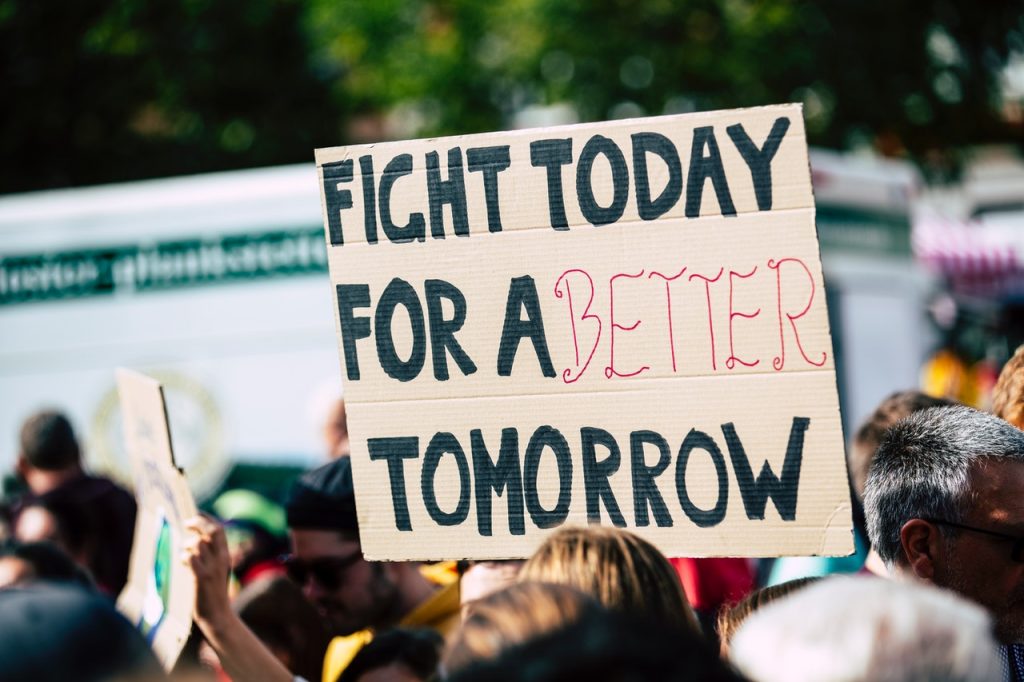
What Can The Police Arrest You For At A Protest?
Every American citizen has the fundamental right to speak out and express their views because both federal and state laws protect your right to speech and expression. A lot of people know of their First Amendment, but not many are aware that this privilege comes with certain limitations, which are imposed on your freedom of speech, assembly, and protest. When protestors test the boundaries of these restrictions, they are likely to face law enforcement officers and, subsequently, serious criminal charges. This article will discuss common reasons why police officers can arrest you at a protest, even if you’re exercising your freedom of speech.
You may have many questions about whether a protest is legal or not. But you only need to remember two major principles:
- Free speech
Generally, all kinds of expressions are protected by the First Amendment. Free speech is a basic right for everyone, no matter their demographic characteristic or belief, and no one can take that from you – not even your government.
The First Amendment prohibits authorities from restricting freedom of expression based on the content of speech. They may, however, place non-discriminatory restrictions to regulate the time, place, and manner of your demonstration. What this means is that it’s not what you say that matters. It’s how you say it. With a few notable exceptions, no one can restrict your rights because they don’t like what you say.
- When and where
Before participating in any protest, one important thing to consider is when, where, and how you choose to exercise your right to free speech. All kinds of activity in traditional public forums like sidewalks and parks are constitutionally protected. Public streets can be used as long as the protest is conducted in accordance with the city’s guidelines. Every city or municipality has different regulations for how protests should be held publicly, and it is your responsibility as an organizer or participant to understand them.
Common criminal charges during protests
There are many reasons why police can arrest protestors, but each case is different. While most offenders receive only minor charges, there are instances where certain crimes might receive harsher punishments. Below is a list of common reasons for arrest during protests and their respective penalties.
- Trespassing – Penal Code 602
Protesters can be arrested for trespassing on private property. Free speech activity is generally allowed in public spaces like streets, sidewalks, and parks. These protections do not apply to federal government facilities like courthouses and the interiors of federal office buildings. In addition, free speech activity is also restricted from private property unless participants have the consent of the owner. The only exception to this is if the property is open to the public, like shopping malls.
Trespassing is a criminal offense that is commonly charged as an infraction or misdemeanor. An infraction will carry a small fine, while misdemeanors are punishable by up to 6 months in county jail or up to $1,00 in criminal fines.
- Unlawful assembly – Penal Code 407 & 408
Many arrests during protests are based on unlawful assembly. If you engage in any unlawful behavior during the protest, law enforcement officers are well within their duties to arrest you. Penal Code 407 and 408 are the guiding laws for unlawful assembly. Penal Code 407 defines unlawful assembly as two or more people assembling together to do something illegal.
Illegal acts that tend to happen during marches include throwing rocks, endangering public safety, or vandalizing property. Unlawful assembly is a misdemeanor crime punishable by up to 6 months in jail and/or up-to $1,000 in criminal fines. Heavier felony charges could apply if the illegal acts in question were severe.
- Failure to disperse – Penal Code 409
Another common charge that tends to happen during protests is failure to disperse, especially if your protest has been deemed unlawful. Even if you are not engaged in any unlawful activity, police can still arrest you if you don’t comply with their order to disperse.
- Resisting arrest – Penal Code 148
Penal Code 148 makes it an offense to interfere or resist a police officer on his/her law enforcement duties. Your local law enforcement authorities may additionally treat your non-cooperation to an arrest as a separate charge.
Protests are a great way to express your beliefs and demand action from the authorities. The First Amendment guarantees the right to every American but with such freedom comes great responsibility. In essence, here’s all you need to know about the illegality of protests. You may not:
- Block access to streets, sidewalks, or buildings
- Conduct any unlawful act
- Engage in speech likely to incite an immediate disruptive or dangerous disturbance
If you’ve been arrested for protesting these past couple of years and have pending charges or a new criminal record for standing up for what you believe in, we highly recommend that you reach out to a defense attorney. The arrest process can be intimidating, but hiring a great attorney will help protect you from the worst possible outcome. We provide a free case evaluation to strategize on the best possible approach to your case. Call us now at (323) 529-3660 or chat with us online to receive immediate help.
If you want to know about protests and arrests, we already have that covered on “What Happens If I’m Arrested For Protesting?” However, if you were part of a protest group that is facing charges for criminal trespassing, please reach out to our firm via phone. Our Criminal Defense Hero, Attorney Don Hammond, will work tenaciously to ensure the charges are dropped.









